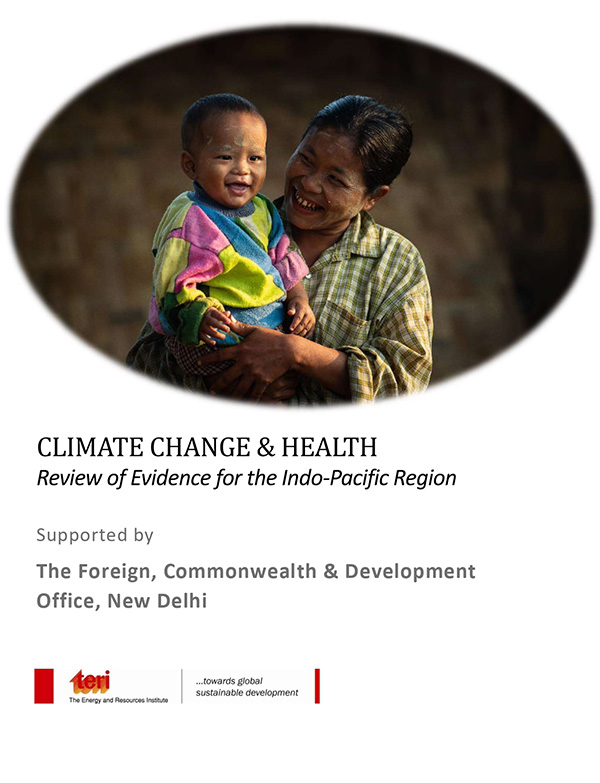Climate Change and Health: Review of Evidence for the Indo-Pacific Region
The Indo-Pacific region is grappling with climate-induced shifts in weather patterns, characterized by rising temperatures and increased precipitation. These changes are contributing to a surge in respiratory and cardiovascular diseases, vector-borne illnesses like dengue, and mental health disorders. Projections indicate that adverse weather incidents in the region will intensify, leading to increased occurrences of heatwaves, floods, and droughts; and further aggravating existing environmental challenges. This escalation poses a serious threat to human lives as well as decades of progress in development, global health, and poverty reduction.
The populations at risk are extensive, particularly in small island nations and coastal areas with dense populations. Alarmingly, 42 million people in the Asia-Pacific region have already been displaced due to climate-related factors such as storms, floods, extreme heat, and rising sea levels, leading to significant internal and cross-border migration. Climate change has been recognized as a ‘profound existential threat’ for the region, introducing new public health challenges and imposing substantial costs on the well-being of current and future generations.
Through an analysis of existing global evidence and the emerging gaps around the impacts of climate change in developing countries, this study by TERI seeks to provide an overview of the current and future challenges to human health from climate change. It explores the impacts of climate change on health, identifies vulnerable groups and the drivers of their vulnerability, examines the existing health systems and their challenges, and assesses the climate policies and plans that include health co-benefits. Furthermore, thematic areas for action in these countries are identified, with a focus on addressing heat-related illnesses, air pollution, conducting climate-health vulnerability assessments, establishing low-carbon healthcare systems, and building resilience against extreme events and infectious diseases. Through these efforts, this study seeks to assist the International Policy Research and Development (IPRD) to develop more resilient healthcare policies to combat the increasingly adverse impacts of climate change.
Vietnam Policy Brief
https://teriin.org/files/Vietnam_Policy_Brief.pdf
Thailand Policy Brief
https://teriin.org/files/Thailand_Policy_Brief.pdf
Philippines Policy Brief
https://teriin.org/files/Philippines_Policy_Brief.pdf
Indonesia Policy Brief
https://teriin.org/files/Indonesia_Policy_Brief.pdf

